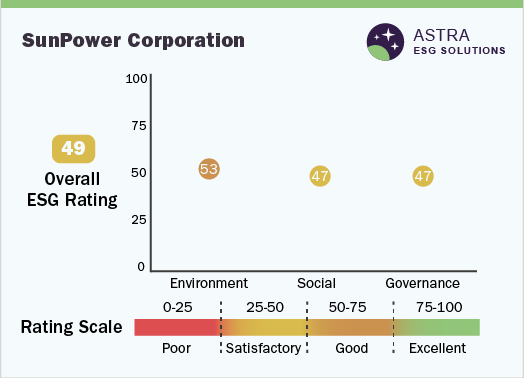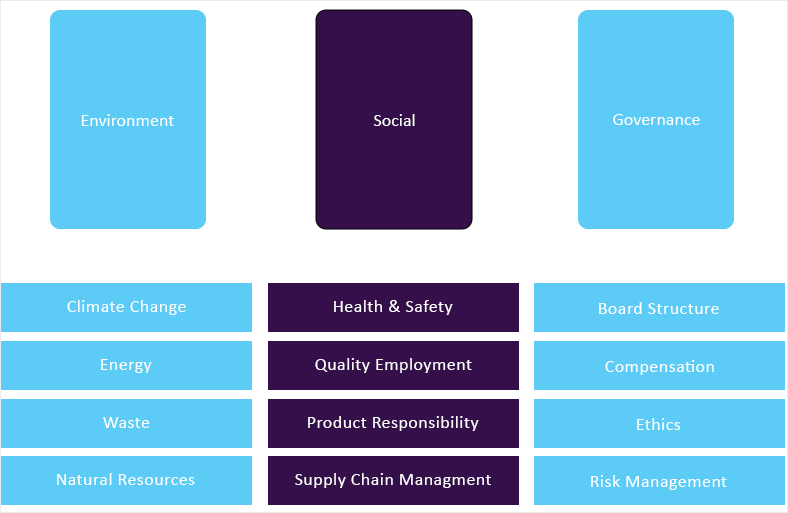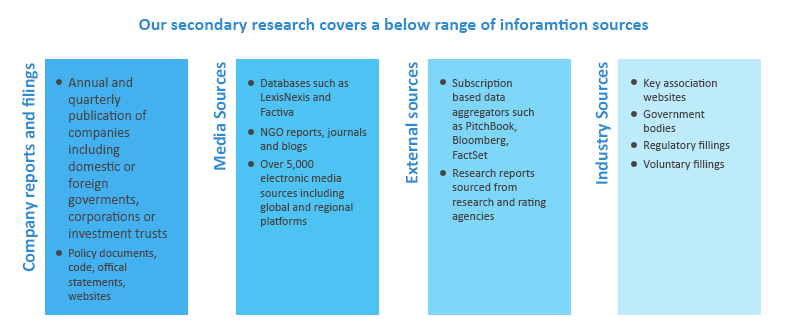Compliance, ESG Challenges & Framework, ESG Trends
- Report Summary
- Methodology
- Request for ESG Consultation
Environment, Social and Governance (ESG) at SunPower Corporation
The policies that impact environment, social, governance, which are made by the companies, involving the consumers and the governments, are shaping the current trend in investments in an unprecedented manner.
Being a key leader in the energy industry, SunPower Corporation, empowered customers with environmentally friendly and energy efficient energy supply and methods of operations and has focused on diversity, equity, and inclusion in the workforce. In regard to this, SunPower Corporation had made policies that define its core ethical values of governance, striving to make a positive impact across all three areas of ESG by also being closely aligned with the United Nations’ Sustainable Development Goals (UN SDGs).
The negative impact on the environment due to the sourcing of electricity from conventional sources and the increase in demand for green energy amongst consumers has impacted the SunPower Corporation in terms of ESG.
ESG Trends
The SunPower Corporation is striving to create a positive impact in the environment, social and governance spheres by making effective policies and strategies. Being one of the key companies of the energy industry, it has created an impact in terms of ESG, by promoting renewable energy sources products, and services.

Since 2005, the company has produced 133 tetra-watt hours of energy by enabling the installation of solar panels. Through this, the company has offset 94 million metric tons of CO2 emissions from conventional sources of energy. Induction of cradle-to-cradle methods of manufacturing to evade the waste from the solar panel products.
The company has made strategies and introduced refining technologies to reduce scope 1, 2, and 3 emissions from its operations. This has helped the company achieve the United Nations Sustainable Development Goal of climate action (SDG13).
Further, the company has partnered with Dependable Highway Express and Kuehne Negel for powering the logistics with electric vehicles fleet, aiming to reduce the emissions from the logistics and value chain, reducing the carbon footprint.
SunPower Corporation has also focused on Diversity, Equity, and Inclusion, to create a positive outcome in the social sphere of ESG. In 2021, SunPower Corporation has reported that around 52% of whites are included in the workforce along with 15% of Hispanic-origin people, 12% of unidentified races, 8% of Asians, and 13% of black African-American and Native American people into the workforce. At the executive level at least, 25% of the members are females and around 33% of the female workforce is inducted, promoting the UNSDG goals of gender equality (SDG5).
In terms of governance, the company has adopted Corporate Governance Principles that aim at fairness and transparency amongst the members and the Business Ethics Code, which is inclusive of human rights, mandating the members of the company at all levels to undertake it annually. Further, the company has made whistleblower policies, withstanding the non-retaliation policy and data privacy and risk management policies as to promote the integrity of the company, thereby promoting the UNSDG goals of institutions for peace and justice (SDG16).
Future of ESG at SunPower Corporation
In 2021, SunPower Corporation had a revenue of USD 1.24 billion. Being one of the key leaders in the energy industry, SunPower has made initiatives and policies that create a positive impact on the environment and society in parallel, and these policies reflect the core values of the SunPower Corporation.
Research methodology
Grand View Research (GVR) employs a holistic and robust research methodology focused on delivering precision. Our ESG key issues are selected following a thorough materiality analysis run by our taxonomy committee. We examine leading business journals relevant to the industry sector and where applicable references are made to a range of sources including regulatory agencies, trade associations, company filings, white papers, and analyst reports during the due diligence on data aggregation. In addition, a recurring theme that remains central to all our research reports remains data triangulation which aims to dive into the market from thematic context, regulation, and industry benchmarking, including SWOT analysis.
Eligibility Criteria and Company Selection
Each public company is curated by our senior researchers following a comprehensive study of their business involvement around a specific theme. The involvement extends to subsidiaries based on at least 50% holding by the parent company. Following this, we analyze fundamental financial indicators, including revenue and market capitalization to ensure a diverse set of companies that fairly represent the sector are included. Additionally, GVR researchers ensure the disclosure level of each company across the material ESG key issues.
Scoring Methodology
Each ESG metric is assigned a specific weight based on its relevance across sectors. Below are the aggregated weights across pillars, which are derived from each metric.
| Environment | Social | Governance |
| 40% | 30% | 30% |
GVR’s proprietary ESG score is calculated using a weighted average method at:
• Key issues level
• Pillar level
• Company level and,
• Theme level
Data Mining
Data is obtained and collated from diverse source points. The data collected is continuously cleansed to ensure that only validated and verifiable sources are analyzed. In addition, data is also mined from a large number of in-house syndicated research reports inventory as well as through paid databases and premium content. During this research report, we conducted multiple primary interviews across the globe supported by our Primary Research Panels through the delivery of a mix of paid and unpaid interviews. We also send and receive responses from a wide section of industry participants through a carefully crafted and comprehensive survey questionnaire. We triangulate these data into quant models and generate qualitative insights. Evolving industry dynamics that shape drivers, restraints, and pricing are also gathered. As a result, the published content includes proprietary data and meaningful insights.
Fundamental ESG data:
GVR’s ESG taxonomy committee maintains the framework and ensures it is updated quarterly considering market updates and relevance. Framework includes 65+ fundamental ESG metrics that are identified following a thorough materiality assessment. Below is GVR’s ESG Level-I framework:

Alternative ESG data:
GVR also analyzes macro-economic factors that impact or drive the growth of respective sectors. This includes
• Deep dive analysis of policy and regulatory landscape that has potential towards shaping the future of businesses
• Innovation quotient of a sector to gauge prospective evolution of a theme and related opportunities
• Investment scenario, including mergers & acquisition, funding and other deals to assess the investment appetite for a particular theme
• Other market activities, including market size, growth forecasts among others.
Information sources

